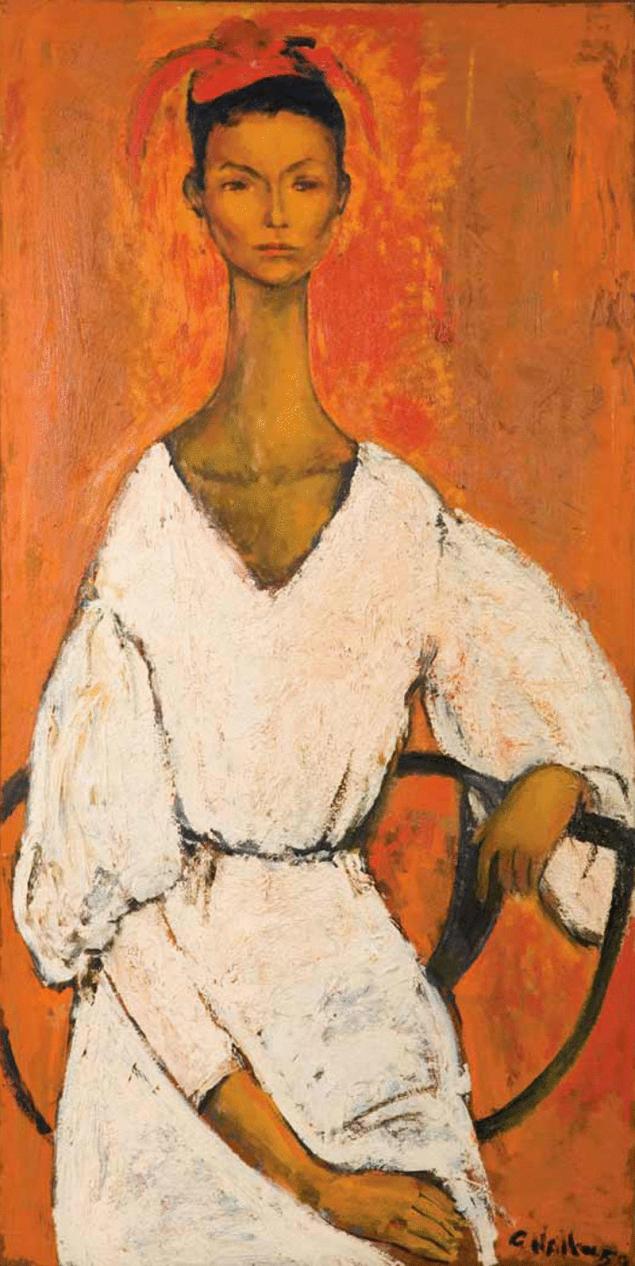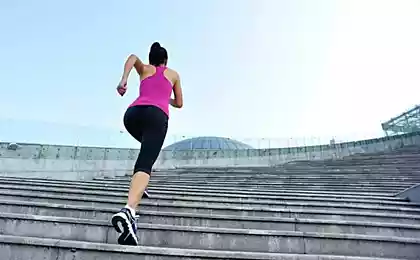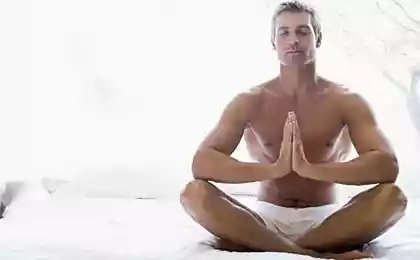542
When your neck needs attention: super effective exercises
When performing movements of the head, you hear crunching, you find it hard to turn it 90 'or the slopes, there is pain, it means that the neck needs treatment.
To enhance the effect of pan and tilt head is necessary to accompany the movement of the eyes in the same direction. Perform slowly and smoothly.

© geoffrey holder
1. Sit on a chair, keeping your back and head straight. Take a deep breath and push your palms on the forehead, at the same time straining neck muscles and not letting the head lean back. Hold your breath and save power for 5-7 seconds. On the exhale, and take away the palm for 10 seconds, relax completely, dropping his head on his chest. Repeat 3-5 times.
2. Inhale, serried in hands locking push back on his head. At the same strain your neck and do not let your head drop. Hold your breath and stay in this position 5-7 seconds. On the exhale, lower your arms and relax for 10 seconds. Repeat 3-5 times.
3. Inhale, push the left hand to his temple, trying not to succumb to pressure for 5-7 seconds. Then exhale, relax your muscles as much as possible of the neck and shoulders, rest 10 seconds. Do the same with your right hand. Repeat the exercise 3-5 times with each hand.
4. The same time make the head tilts back and forth. On the inhale pull the head back, overcoming the resistance of hands covering his neck from behind, and his eyes lift up to the limit. Hold your breath and save the tension in your neck for 5-7 seconds. On the exhale, return the head to its original position. Relax for 10 seconds.
5. When you lean forward palm press on the neck, and it is gradually giving way to this pressure, inhale as much as possible the head is lowered to the chest. Chin pressed against his neck, and his eyes lowered down. Pose is stored 5-7 seconds. Then exhale, return to the starting position and relax.
6. On the inhale, slowly turn your head to the left, straining neck muscles and try to look as far as possible in the direction of movement. Hold your breath and strain for 5-7 seconds. On the exhale, return the head to its original position and relax for 10 seconds. Do exercise 3-5 times in each direction.
7. Lower your head on your chest and relax your neck muscles. Try chin "grind" clavicle, gradually increasing the range of motion. Repeat 10 times.
8. Zaprokinte head back, relax the muscles of the face and neck. Try nape "grind" the lower part of the neck. Repeat 20 times.
9. The shoulders relax and lower. Doing a slow breath, the crown of the most drag up, trying as much as possible to stretch the cervical vertebrae. At the same time makes a turn of the head to the left and to the right with a small amplitude. Return to starting position and relax. Repeat 5 times.
Regular execution helps to relieve pain in the neck to get rid of insomnia, dizziness, headaches, tinnitus, and numb hands. Run in the morning and evening, and periodically throughout the day, every hour is better, to do some exercise.
For example, 1st to 5th, then the 6th to the 9th, and finally, the 10th to 13th. For prevention is especially necessary for those whose job requires longer stay in the same position, or connected with a computer.
To enhance the effect of pan and tilt head is necessary to accompany the movement of the eyes in the same direction. Perform slowly and smoothly.

© geoffrey holder
1. Sit on a chair, keeping your back and head straight. Take a deep breath and push your palms on the forehead, at the same time straining neck muscles and not letting the head lean back. Hold your breath and save power for 5-7 seconds. On the exhale, and take away the palm for 10 seconds, relax completely, dropping his head on his chest. Repeat 3-5 times.
2. Inhale, serried in hands locking push back on his head. At the same strain your neck and do not let your head drop. Hold your breath and stay in this position 5-7 seconds. On the exhale, lower your arms and relax for 10 seconds. Repeat 3-5 times.
3. Inhale, push the left hand to his temple, trying not to succumb to pressure for 5-7 seconds. Then exhale, relax your muscles as much as possible of the neck and shoulders, rest 10 seconds. Do the same with your right hand. Repeat the exercise 3-5 times with each hand.
4. The same time make the head tilts back and forth. On the inhale pull the head back, overcoming the resistance of hands covering his neck from behind, and his eyes lift up to the limit. Hold your breath and save the tension in your neck for 5-7 seconds. On the exhale, return the head to its original position. Relax for 10 seconds.
5. When you lean forward palm press on the neck, and it is gradually giving way to this pressure, inhale as much as possible the head is lowered to the chest. Chin pressed against his neck, and his eyes lowered down. Pose is stored 5-7 seconds. Then exhale, return to the starting position and relax.
6. On the inhale, slowly turn your head to the left, straining neck muscles and try to look as far as possible in the direction of movement. Hold your breath and strain for 5-7 seconds. On the exhale, return the head to its original position and relax for 10 seconds. Do exercise 3-5 times in each direction.
7. Lower your head on your chest and relax your neck muscles. Try chin "grind" clavicle, gradually increasing the range of motion. Repeat 10 times.
8. Zaprokinte head back, relax the muscles of the face and neck. Try nape "grind" the lower part of the neck. Repeat 20 times.
9. The shoulders relax and lower. Doing a slow breath, the crown of the most drag up, trying as much as possible to stretch the cervical vertebrae. At the same time makes a turn of the head to the left and to the right with a small amplitude. Return to starting position and relax. Repeat 5 times.
Regular execution helps to relieve pain in the neck to get rid of insomnia, dizziness, headaches, tinnitus, and numb hands. Run in the morning and evening, and periodically throughout the day, every hour is better, to do some exercise.
For example, 1st to 5th, then the 6th to the 9th, and finally, the 10th to 13th. For prevention is especially necessary for those whose job requires longer stay in the same position, or connected with a computer.
























